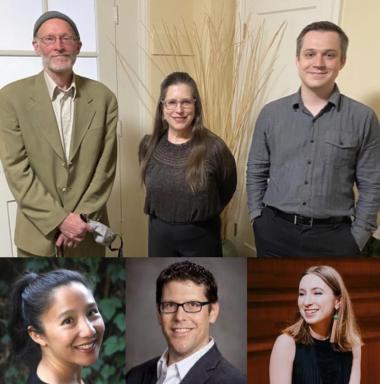
Opera without an orchestra? Yes! Jean-Philippe Rameau's Les Surprises de l’Amour, an opera-ballet, was first performed in 1748. In the first act, L’Enlévement d’Adonis, the main singing characters are Diana, Cupid, Adonis, and the concept is the struggle between love and chastity, and in La Lyre Enchantée, the main characters are Parthenope, Urania, Linus, and Apollo, and the theme is the conflict between love and indifference. Harmonia Felice (Amy Brodo and Roy Whelden, violas da gamba; Jon Mendle, tiorba; Caitlyn Koester, harpsichord with Caroline Jou Armitage, soprano, and Brian Thorsett, tenor), are using a transcription by eighteenth century composer Ludwig Christian Hesse which enables them to portray the essence of this wonderful music, the recitatives, arias, dance movements, the colorful and expressive writing by Rameau with just two violas da gamba and a contiuo group. The instruments take the role of the chorus as well as the dance band. They have added back two singers because the vocal writing of Rameau is incredibly beautiful, and not to be missed.
Linus, a humble shepherd and musician, possibly the brother of Orpheus, falls in love with Urania the Muse of astronomy who is indifferent to his advances. The Siren Parthenope tricks Urania by tying Linus to a tree and laying an enchanted lyre next to the tree which makes anyone who touches it fall in love with the first person he or she sees. Urania comes upon the enchanted lyre and sings a love song to Linus. Apollo appears and clears any confusion and, in the end, the sirens and the muses unite to combine their talents and sing and dance in joy.
Masks are recommended, but not required. A variety of seating is available.
